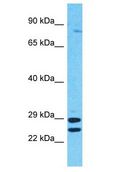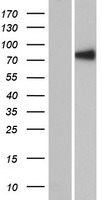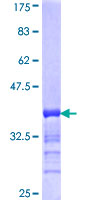order histories, retained contact details for faster checkout, review submissions, and special promotions.
Forgot password?
order histories, retained contact details for faster checkout, review submissions, and special promotions.
Locations
Orders Processing,
Shipping & Receiving,
Warehouse
2 Shaker Rd Suites
B001/B101
Shirley, MA 01464
Production Lab
Floor 6, Suite 620
20700 44th Avenue W
Lynnwood, WA 98036
Telephone Numbers
Tel: +1 (206) 374-1102
Fax: +1 (206) 577-4565
Contact Us
Additional Contact Details
order histories, retained contact details for faster checkout, review submissions, and special promotions.
Forgot password?
order histories, retained contact details for faster checkout, review submissions, and special promotions.
RSHL1
radial spoke head 6 homolog A (Chlamydomonas)
The protein encoded by this gene is similar to a sea urchin radial spoke head protein. Radial spoke protein complexes form part of the axoneme of eukaryotic flagella and are located between the axoneme's outer ring of doublet microtubules and central pair of microtubules. In Chlamydomonas, radial spoke proteins are thought to regulate the activity of dynein and the symmetry of flagellar bending patterns. This gene maps to a region of chromosome 19 that is linked to primary ciliary dyskinesia-2 (CILD2).
| Gene Name: | radial spoke head 6 homolog A (Chlamydomonas) |
| Synonyms: | RSPH6A, Radial spokehead-like 1, RSPH4B, RSHL1, RSP4, RSP6 |
| Target Sequences: | NM_030785 NP_110412.1 Q9H0K4 |







If you do not find the reagent or information you require, please contact Customer.Support@LSBio.com to inquire about additional products in development.










